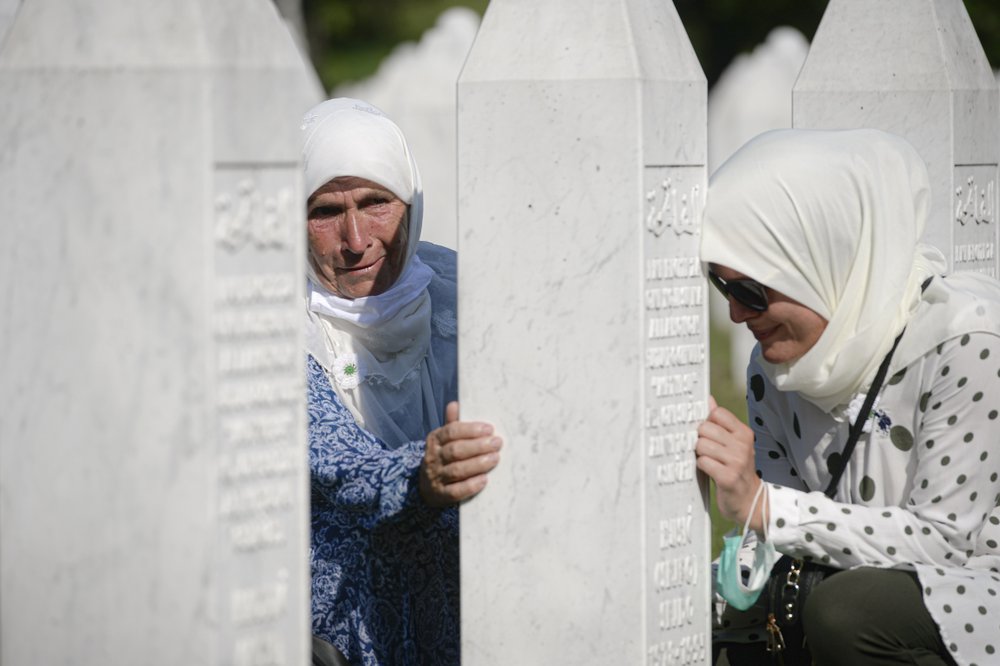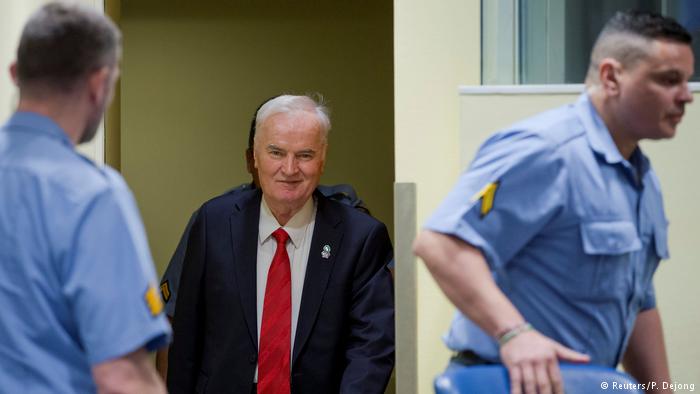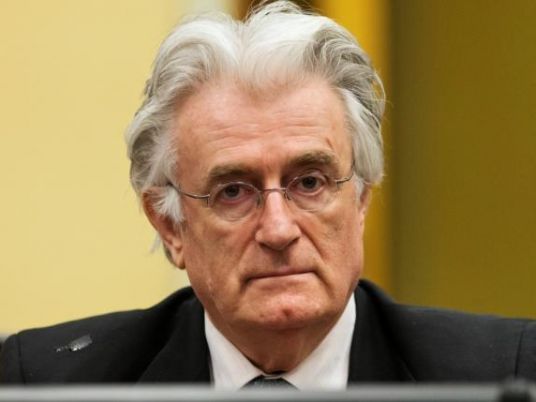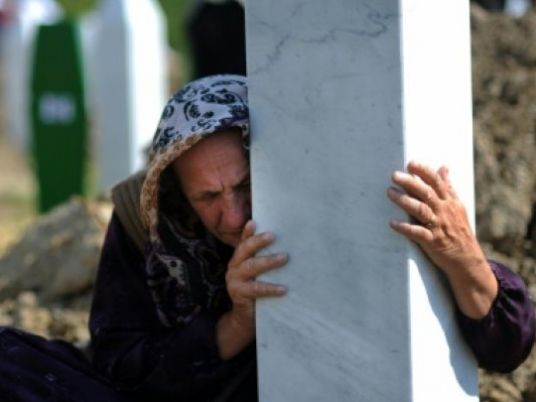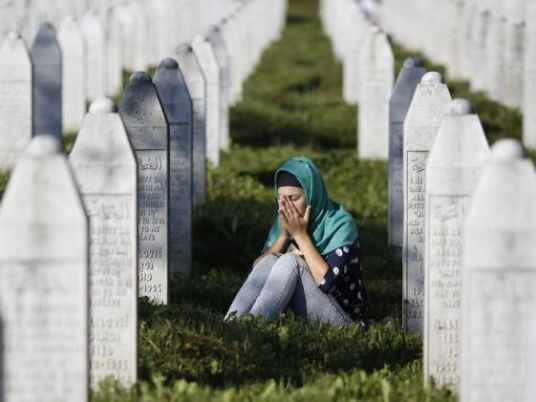
Tens of thousands gathered at a cemetery near Srebrenica in Bosnia on Saturday to mark the 20th anniversary of Europe's worst atrocity since World War Two, still tortured by voices of denial and the ongoing search for the dead.
Abandoned by their U.N. protectors toward the end of a 1992-95 war, 8,000 Muslim men and boys were killed by Bosnian Serb forces over five July days, their bodies dumped in pits then dug up months later and scattered in smaller graves in a systematic effort to conceal the crime.
More than 1,000 victims have yet to be found.
The bones of 136 newly identified victims will be interred beneath marble gravestones in the Potocari memorial cemetery in eastern Bosnia, in what has become annual ritual as the graves are discovered.
A U.N. court has ruled the massacre was genocide. Many Serbs dispute the term, the death toll and the official account of what went on – reflecting conflicting narratives of the Yugoslav wars that still feed political divisions and stifle progress toward integration with Western Europe.
Milorad Dodik, president of Bosnia's autonomous Serb Republic where Srebrenica is located, last month called the massacre "the greatest deception of the 20th century."
Serbia, which backed Bosnian Serb forces with men and money, was represented by Prime Minister Aleksandar Vucic, fresh from enlisting ally Russia to veto a U.N. resolution last week that would have condemned the denial of Srebrenica as genocide.
A former disciple of the "Greater Serbia" ideology that fueled much of the bloodshed of Yugoslavia's demise, Vucic has rebranded himself as pro-Western, embracing Serbia's ambitions of joining the European Union, which depend partly on the pursuit of regional reconciliation.
Safe haven
Vucic was welcomed by Munira Subasic, head of the Association of Srebrenica Mothers and whose husband and son were among those killed.
She pinned a white and green crochet flower of remembrance on his lapel and he signed a book of condolences.
Hamida Dzanovic, who had come to bury the only two bones found of her husband, said: "Look at him, and look at those thousands of tombstones. Is he not ashamed to say that this was not genocide? Is he not ashamed to come here?"
She recalled the last time she saw her husband: "I remember him returning twice to kiss our children, like he knew we would never see each other again."
Ever since the massacre, the West has faced questions over how it allowed the fall of Srebrenica, a designated U.N. "safe haven" for Muslims Bosniaks displaced by the war.
Months later, NATO air strikes forced the Serbs to the negotiating table. A U.S.-brokered peace treaty ended the fighting and enshrined in Bosnia a complicated and unwieldy system of ethnic power-sharing that survives today.
Bill Clinton, who was U.S. president at the time, told those gathered: "I grieve that it took us so long."
"I never want to see another killing field like this," he said.
The accused chief architects of the massacre – Bosnian Serb wartime political leader Radovan Karadzic and military commander Ratko Mladic – remain on trial at a U.N. court in The Hague, protesting their innocence.
In the Serbian capital, Belgrade, police ringed the parliament after Vucic's government banned a gathering of remembrance for Srebrenica's dead. Instead, a few hundred Serbians lit candles in a nearby park late on Friday.

